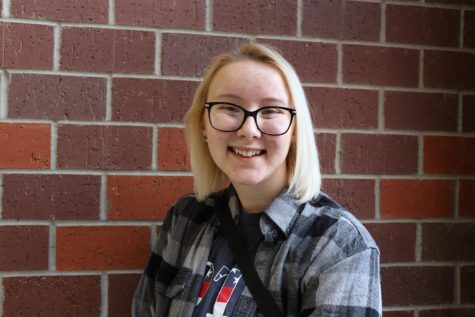Hate won’t make us great
Reflecting on Charlottesville
“I am all for protesting, I think once you start vandalizing, once you start hurting other people physically, once you start getting physical altercations, that’s too far,” said school resource Officer J. Johnson. “I am all for protesting, I think once you start vandalizing, once you start hurting other people physically, once you start getting physical altercations, that’s too far,” said school resource Officer J. Johnson.
On August 12, a group of protesters organized a “Unite the Right” rally to protest the removal of a Robert E. Lee statue in Charlottesville, Virginia. Neo-Nazis, Ku Klux Klan members, and other white nationalist groups showed up to support this cause. This situation quickly escalated into riots when Anti-Fascist groups started counter-protesting. One woman was killed and 30 other people were injured at the protest when a car sped into a group of the counter-protesters. “I think it’s just because the United States is just so polarized right now,” Johnson said. “I just think politics in general is really, really polarized.” During the rally, the white nationalist groups were spewing hate speech such as, “Jews will not replace us,” and the Nazi slogan “Blood and soil.”
While walking around NPHS, I’ve often heard students repeatedly telling racist jokes and using racial slurs. The question that comes to my mind is: when is it a joke and when is it racist, hate speech? Junior Alexis Navarette said her friends joke about her race, “They’ll tell me, ‘It’s so dark, I can barely see you. The only thing I can see is your teeth,’ because they’re white.” She said she usually doesn’t take offense and just laughs it off. “When it’s not okay is when we are talking about the N-word. Even though I’m black, I never use it.”
“I think you can tell when someone is joking and when someone’s being racist, I don’t know how, but it feels different,” said junior William Vega. He moved to North Platte from El Salvador where everyone was from his own culture, but here he is trying adjust. “I like your people, I like you, but… sometimes they’re racist to me,” said Vega. In his last class a guy said to him, “Hey, you’re not even from this country, what are you doing here? You don’t know English, you don’t know nothing about this country, so go away.” Vega had to defend himself by saying, “You’re not my owner, you’re living in this country, but this is a free country and you can do whatever you want.”
Many students think there is no racism in North Platte, that all of these problems are far away and off their radar. But, the same kinds of organized hate groups that were involved in the Charlottesville riots are around us too. Within a half-day’s drive from North Platte, there are dozens of organized hate groups including Neo-Nazis, black separatists, racist skinheads, and other white nationalist groups. People need to realize there’s more of a threat for people of color in Nebraska than you think. They also need to understand that their words have the capacity to hurt others, and should think about what they’re saying and how it will affect other people. “If it comes from my friends I think it’s okay,” said Vega. “But if I don’t know someone, and they’re joking at me, it’s going to hurt.”


